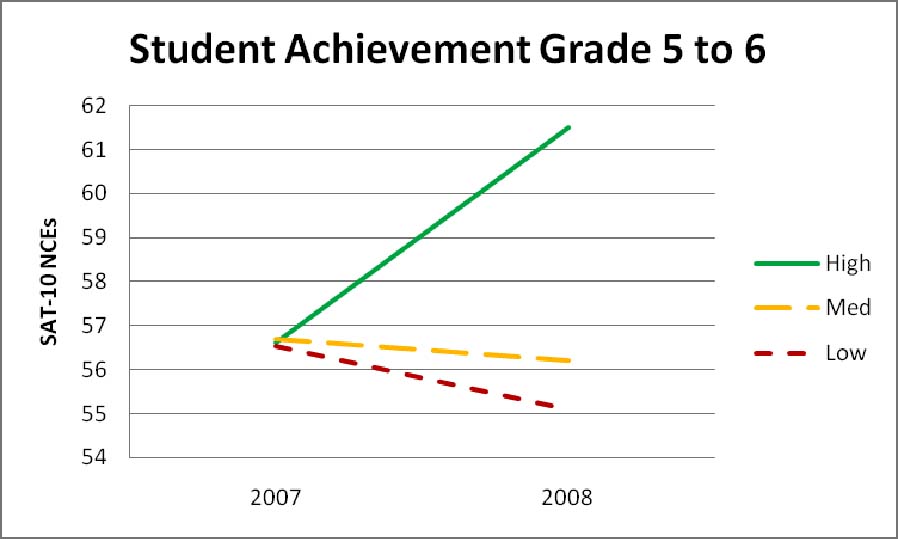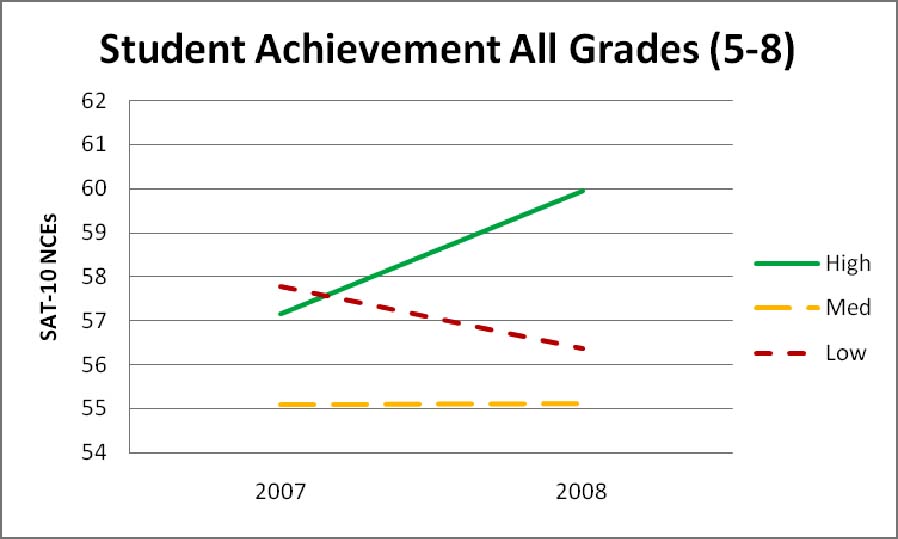Challenging Courses, Student Achievement, and Barriers to Implementation
Student Achievement by Implementation Level
From 2007 to 2008, SAT-10 NCE scores were compared from grades 4 to 5, 5 to 6, 6 to 7, and 7 to 8 for matched students. The results showed that students in high implementing grades within schools showed more growth in scores than students in moderate or low implementing grades. The results were analyzed for each grade. The first graph below shows the results from grades 5 to 6 (student achievement over time by implementation level) and the second graph shows the results of combining all targeted grades.


The table on the left below summarizes the data from combining all target grades (six school districts). The table on the right represents the data excluding the high SES district (five school districts). Repeated measures ANOVA and univariate analysis of difference scores each indicated significance at p < 0.05.
|
|
||||||||||||||||||||||||||||||||||||||||||||||||||||||||||||||||||||||||
Barriers to Implementation
Teacher surveys, focus groups, and reflective writing included in teacher portfolios have indicated that many teachers find experiencing challenging inquiry-based instruction first-hand to be a transformational experience and report the desire to radically change their own classrooms to provide this type of experience for their students. However, after they return to their schools, they are confronted with obstacles. The surveys, focus groups, and reflective writing also indicated that perceived barriers to implementation include: lack of curricular materials aligned with inquiry-based pedagogy, lack of understanding of the specifics of how to implement inquiry in their course of study, administrators who do not actively support inquiry, concerns that parents would react negatively to change, and the pressure to cover material associated with high stakes testing. Other authors have considered these issues including [FD] and [L].



